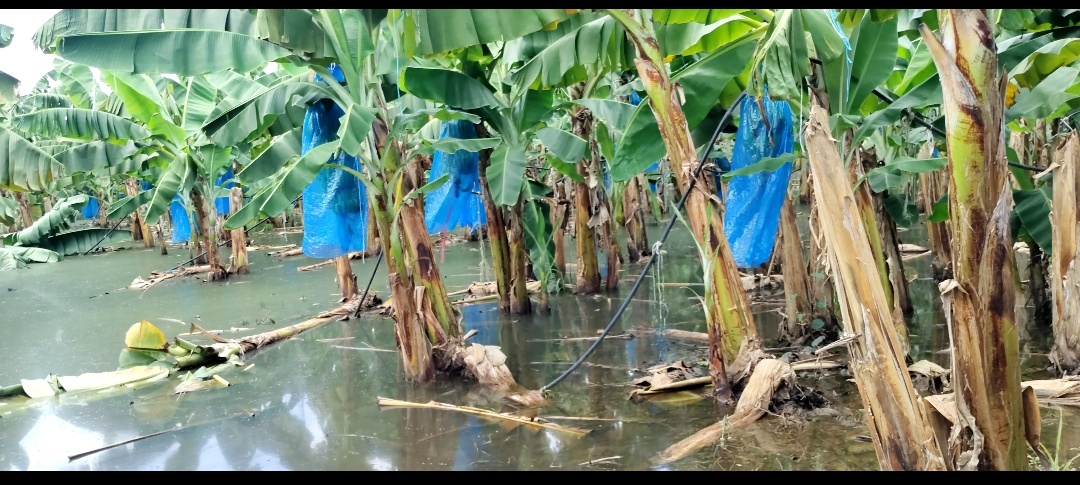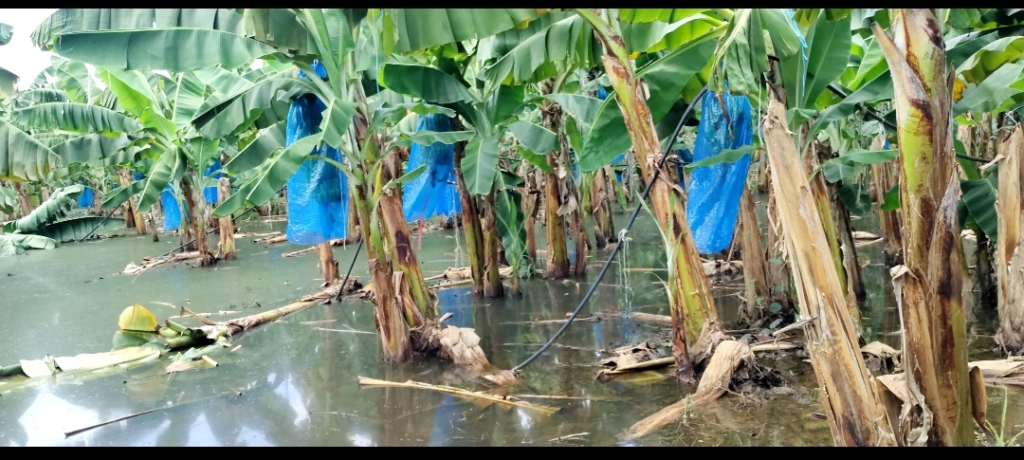
Dam spillage wreaks more havoc
Farming and other related activities have come to a complete halt in the Kpando Torkor, Dzigbe and Bayiborme areas as the overspill of the Akosomobo and Kpong Dams have left farms and other properties submerged and fishermen temporarily unable to fend for themselves and families.
This was uncovered when a team from the General Agricultural Workers Union (GAWU) paid working calls on some of their union members along the Lake Volta.
In most of the communities visited, fishermen were seen idling at home and fish mongers with nothing to do.
According to Mr. Louis Acolatse, a nationally awarded fisherman who plies his trade on the Volta Lake, “we are now praying for a miracle from God because we do not know when this water will drain”. He disclosed that the volume of the water had reached dangerous levels and “it will be suicidal for any fisherman to attempt to go and catch fish.
It is not only fishermen who have been affected by the overspill. According to Mr. Acolatse, the water had claimed properties and farms within a 500-metre radius away from the shores, and has totally submerged the GAWU offices, the fish processing unit, and the fishmongers’ shed and has also affected the Navy and Police offices.
VREL Banana Plantation Under Water
The Site D section of the Volta River Estates Limited (VREL) Banana Plantation in Akuse has been totally submerged in water as a result of the spillage of the Akosombo and Kpong Dams and management is seriously contemplating certain drastic decisions in a bid to salvage the situation.

Mr. Prosper Tamakloe, who is the Farm and Pack-House Supervisor said “so far we are unable to tell the number of plants that have been affected because almost every section of this farm with the exception of this small patch of land we are walking on, has been submerged.
Mr. Tamakloe disclosed to the GAWU team, led by the Deputy General Secretary, Mr. Andrews Tagoe, that “the quantum of export has reduced because now, on Site D, we are only producing a little fraction of our capacity”. His pain was that some of the affected banana plants were nearly or ready for harvesting before the disaster struck but unfortunately, they would have to count all that as losses because “banana does not need too much water and now that these ones have been sitting or standing in the water for weeks, it just means that we will not get the quality we need for export or even consumption”. He added however, that a proper assessment would be scheduled after the water has receded to determine the extent of damage to the plants and the farm.
story by: Lucy Baagyei-Danso



